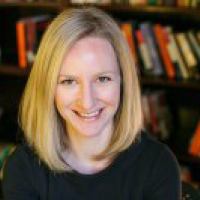The Politics of Mass Violence in the Middle East
Because few of the many bloodbaths that occurred in the twentieth century Middle East qualify as genocides under the UN’s legal definition, the field of genocide studies has largely excluded the Middle East as a subject of analysis. Nevertheless, there is considerable value in thinking about the mass violence that has unfolded there as a collective phenomenon, one that crosses national borders and has come to characterize the political landscape of the region as a whole. This talk explores how an analytical focus on mass violence – encompassing the concepts of genocide, ethnic cleansing, forced migration, appropriation of resources, mass imprisonment, and forcible denationalization – can help explain the emergence of a dystopian politics of identity across the modern Middle East.
Laura Robson is the Oliver-McCourtney Professor of History at Penn State University. She received her PhD from Yale University and is the author and editor of several books, including States of Separation: Transfer, Partition, and the Making of the Modern Middle East (University of California Press, 2017), which explores the history of forced migration, population exchange, and refugee resettlement in Iraq, Syria, and Palestine during the interwar period, and the edited volume Partitions: A Transnational History of 20th Century Territorial Separatism (co-edited with Arie Dubnov; Stanford University Press, 2019), which examines the emergence and consequences of the political “solution” of partition in the twentieth century world. Her latest book, The Politics of Mass Violence in the Middle East, was published with Oxford University Press in fall 2020.
The Washington History Seminar is co-chaired by Eric Arnesen (George Washington University and the National History Center) and Christian Ostermann (Woodrow Wilson Center) and is organized jointly by the National History Center of the American Historical Association and the Woodrow Wilson Center's History and Public Policy Program. It meets weekly during the academic year. The seminar thanks its anonymous individual donors and institutional partners (the George Washington University History Department and the Lepage Center for History in the Public Interest) for their continued support.
Speaker

Oliver-McCourtney Professor of History, The Pennsylvania State University
Moderators


Professor of History, The George Washington University. Director, National History Center of the American Historical Association.
Panelists


Hosted By

History and Public Policy Program
A leader in making key foreign policy records accessible and fostering informed scholarship, analysis, and discussion on international affairs, past and present. Read more
